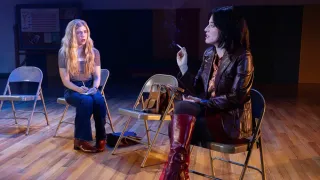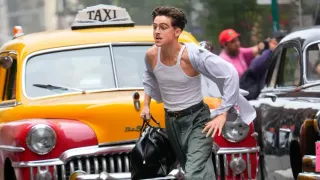August 13, 2020
Fiat Chrysler Calls GM's Bribery Allegations 'Preposterous'
Tom Krisher READ TIME: 3 MIN.
Allegations by General Motors that Fiat Chrysler Automobiles bribed union officials are "preposterous" and read like a script from a "third-rate spy movie," FCA lawyers wrote in court documents filed Monday.
GM, in a motion last week, alleged that Fiat Chrysler used foreign bank accounts to bribe union officials so they would stick GM with higher labor costs.
But in a response, the Italian-American automaker fired back, calling GM's claims "defamatory and baseless."
GM alleged in its motion that FCA spent millions on bribes by stashing the money in foreign accounts. The assertion that there is new evidence came as GM asked a federal judge to reconsider his July dismissal of a federal racketeering lawsuit against Fiat Chrysler.
In trying to revive the lawsuit, GM alleged that bribes were paid to two former United Auto Workers presidents, as well as a former union vice president and at least one former GM employee.
In its response, Fiat Chrysler said the judge should deny GM's motion. GM, FCA said, has to know that the prospect of getting the judge to overturn the dismissal is slim to none. "So this motion is apparently a vehicle to make more defamatory and baseless accusations about a competitor that is winning in the marketplace."
FCA denied allegations by GM that FCA paid two "moles" to infiltrate GM and send inside information. The company also denied that foreign bank accounts were involved. "That GM has extended its attacks to individual FCA officers and employees, making wild allegations against them without a shred of factual support, is despicable," FCA lawyers wrote.
GM's claims are based on the alleged existence of foreign bank accounts, which are legal, Fiat Chrysler wrote. "There is not one well-pled allegation in the proposed amended complaint (by GM) that these foreign bank accounts were used to pay bribes or facilitate any other illegal conduct," FCA's response said.
GM contends that bribes were paid to former United Auto Workers Presidents Dennis Williams and Ron Gettelfinger, as well as Vice President Joe Ashton. It also alleges money was paid to GM employees including Al Iacobelli, a former FCA labor negotiator who was hired and later released by GM.
GM alleges that payments were made so the officials would saddle GM with more than $1 billion in additional labor costs.
Gettelfinger, whose name had not come up previously in a wide-ranging federal probe of UAW corruption, vehemently denied the allegations in a statement and said he had no foreign accounts. Williams' California home was raided by federal agents but he has not been charged. Iacobelli, who is awaiting sentencing in the probe, also denied the claims.
In July, U.S. District Judge Paul Borman in Detroit tossed out GM's lawsuit that alleged that Fiat Chrysler paid off union leaders to get better contract terms than GM.
He wrote that GM's alleged injuries were not caused by FCA violating federal racketeering laws, and that the people harmed by the bribery scheme were Fiat Chrysler workers.
GM's motion contended that payments were made to accounts in places like Switzerland, Luxembourg, Italy, Singapore and the Cayman Islands. The accounts were set up to avoid detection in the federal criminal probe, according to the motion. The accounts were discovered recently by private investigators working on GM's behalf, according to court records.






